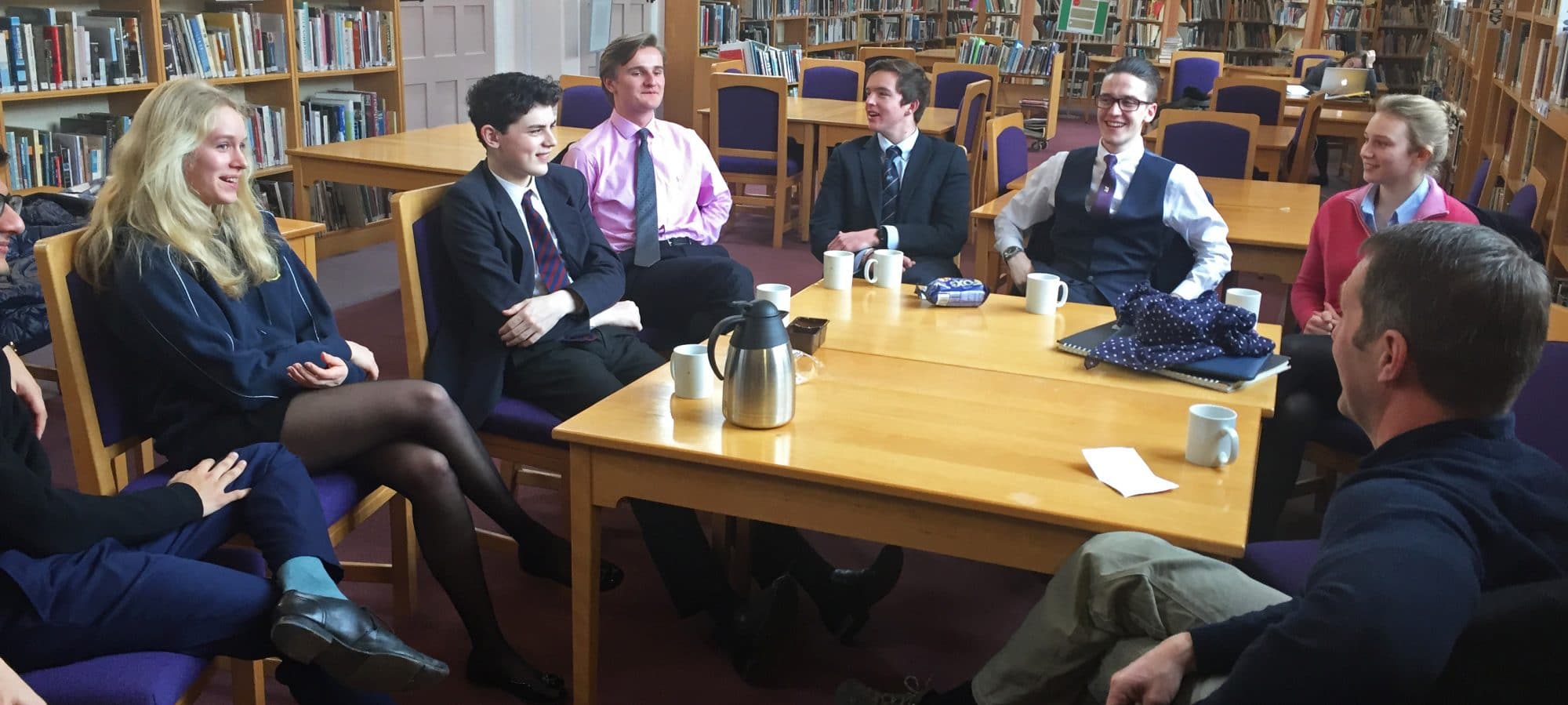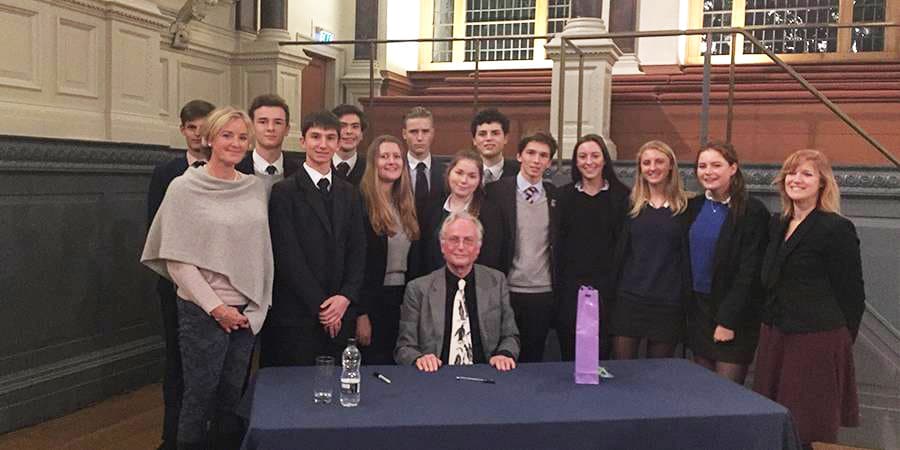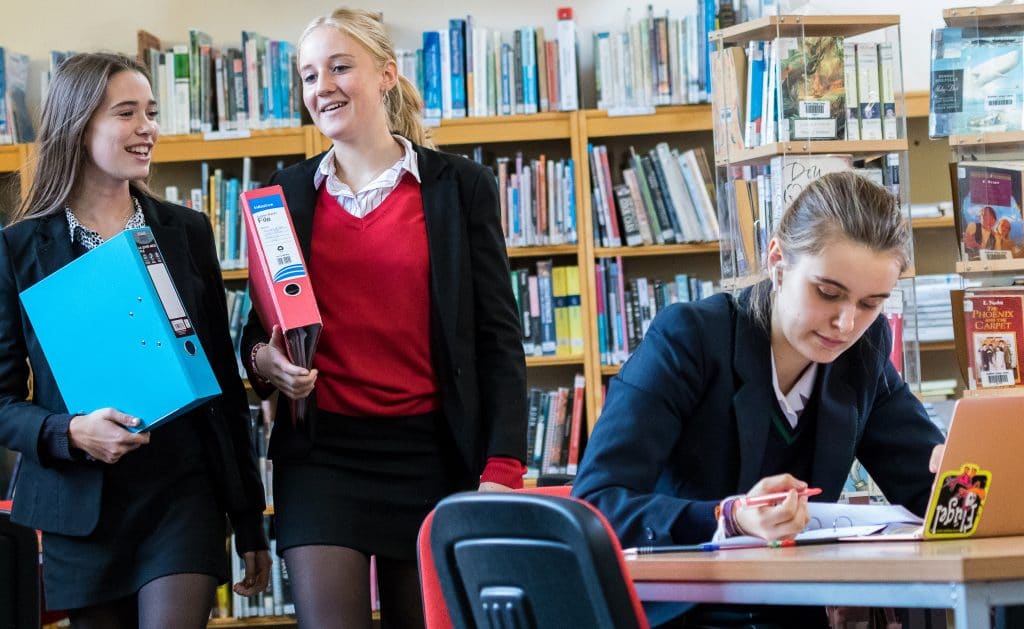
Each week, on a Wednesday or Friday afternoon, a group of pupils and staff can be found in the Garrett Library engrossed in lively discussion over cookies and hot chocolate.
This is Diadati: an intellectual discussion group where pupils choose the topics and invite speakers to provide a short thought-provoking talk to get the ball rolling. The aim of the society is to widen pupil learning and expose them to ideas, topics and theories outside of their studies, enriching their knowledge and giving them an opportunity to discuss these issues in a small group setting.
In a way, Diadati resembles the format of TED talks with the added benefit of a discussion forum.
The Diadati Society was christened by Old Bradfieldian Harry Tanner after the Villa Diodati in Switzerland. This Villa is where Lord Byron, Percy Bysshe Shelley and Mary Shelley used to meet, and it was from the discussions within this Villa that the Gothic novel, ‘Frankenstein’, was conceived. The theory is that the society replicates the original Villa Diodati; it facilitates a meeting of minds for the furtherance of intellectual illumination.
Open to anyone
The society is open to anyone who wishes to attend and meets in the library, with occasional picnic-style gatherings outside in the summer months. Each term, pupils think about topics that they would like to discuss.
The topics do not necessarily have to be linked to the curriculum, as the purpose of Diadati is to broaden intellectual horizons through exposure to little-known topics. For example, if a pupil is studying A Levels in Physics, Maths and Chemistry but has an interest in English Literature or Philosophy, Diadati enables them to learn something of those subjects through mini-talks and discussion. In a way, Diadati resembles the format of TED talks with the added benefit of a discussion forum.
Led by the pupils
Talks over the years have been fascinating and have varied widely. The society draws heavily upon the specialist knowledge of subject teachers and shamelessly plunders their expertise for the benefit of the pupils. In the past few years, a raft of teachers have spoken on topics such as game theory, astrophysics, historical topics, philosophy and the theory of knowledge.
The society replicates the original Villa Diodati; it facilitates a meeting of minds for the furtherance of intellectual illumination.
Diadati also encourages pupils to take the floor and lead a discussion, and there have been excellent pupil talks on Genetics, Biology, Psychology and Physics. The Extended Project Qualification (EPQ) produces some exceptional research on all sorts of subjects and Diadati is a great place to present the findings of this research; one excellent EPQ talk at Diadati was about the science of baking, where the audience was required to sample different types of cake! The society encourages attendance at EPQ presentations as these offer a wonderful opportunity to learn from other pupils’ research.
Inviting external speakers
Occasionally external guests are invited to speak where specialist topics have been selected for discussion. Former Diadati speakers include: Paddy Burrowes (former Bursar) on law and being a lawyer; Financial Times journalist David Allen Green on Brexit; Jurek Sikorski from the Henley Business School on entrepreneurship; Dr. Helen Moore, Professor in English at Oxford University, who discussed her research on John Webster; and Harry Tanner deliberated on the neuroscience of language.
Every so often Diadati teams up with other departments and runs trips out of College when there are talks or events that are of real value. We joined the Science department for a trip to New Scientist Live where we heard from leading lecturers and researchers in the fields of Physics, Biology, Technology and Health and had a chance to explore various scientific innovations. We also had an exciting trip to Oxford to hear Richard Dawkins speaking at the Sheldonian Theatre about his books and scientific research.

The Diadati year culminates in a formal dinner which takes place in the Warden’s Room. For me, this is one of the highlights of the year as it is a chance to celebrate our intellectual journey, to formally thank our speakers and to wish any pupil leavers the very best in the future. Diadati enables us to get to know each other quite well by providing a neutral forum for engaging discussion and it is a pleasure to reward pupils for their contributions to the society.
I am always impressed with the quality and the confidence of the pupils debating issues not only with one another but with the speaker as well. Sometimes the discussions take a turn for the bizarre but that just adds to the good humour and enjoyment of knowledge; it is often the discussions that are a little off-the-wall that make society history for years to come!



